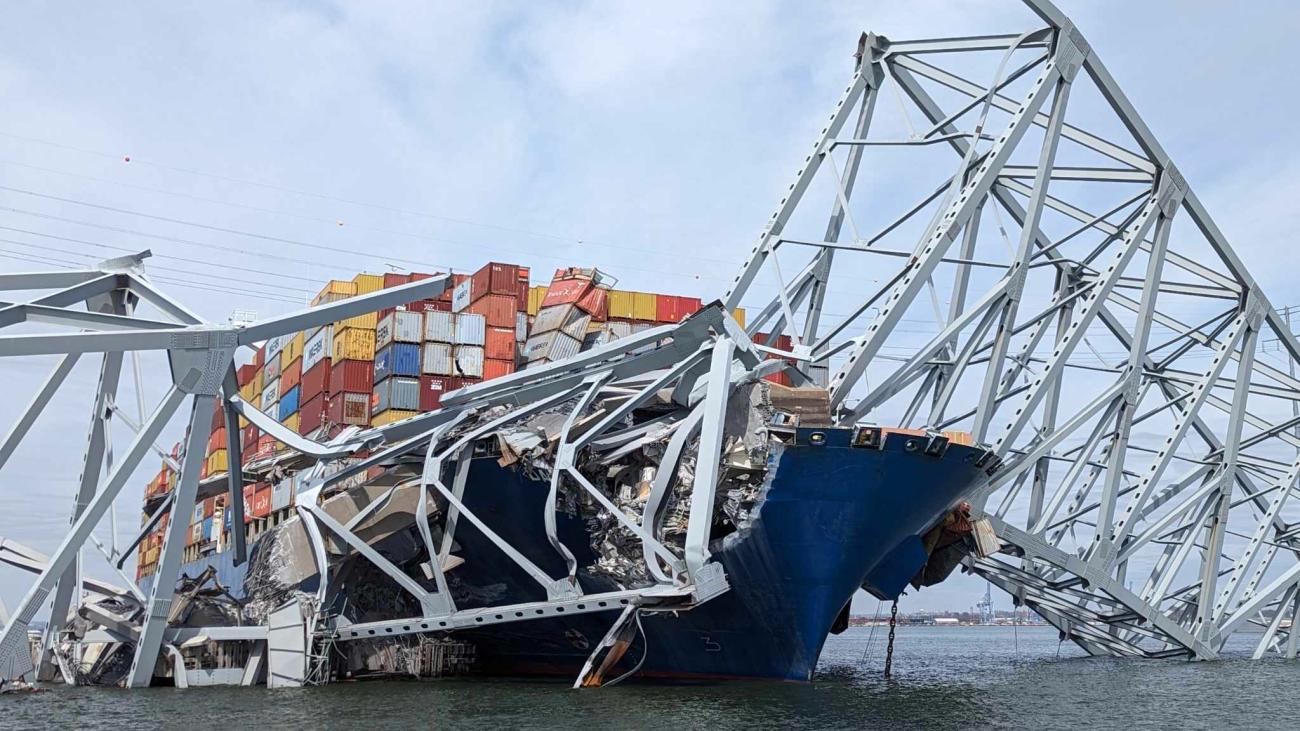'Full range of impact' on businesses in transportation and supply chain logistics after Baltimore bridge collapse, U.S. ...

Engineers in Baltimore expect to restore navigation at Port of Baltimore by the end of March after the Francis Scott Key Bridge collapse. The collapse led to the deaths of workers. The U.S. Army Corps of Engineers aims to open a limited access channel by the end of May. President Biden visited the site. Businesses are impacted, including a shipping firm estimating losses between $5-10 million due to the port closure.
Source: Link
FAQ on Impact of Baltimore Bridge Collapse on Businesses in Transportation and Supply Chain Logistics
Frequently Asked Questions (FAQ) on Impact of Baltimore Bridge Collapse
1. What has been the immediate impact on supply chains due to the Baltimore bridge collapse?
Answer: The collapse of the Baltimore Key Bridge has led to logistical challenges and disruptions in the region's supply chain and economy. This event has caused transportation delays and has required rerouting, which may increase transit times and costs for suppliers.
2. Will the Baltimore bridge collapse lead to a new supply chain crisis?
Answer: While supply chain experts have acknowledged that the Baltimore bridge collapse will cause logistical headaches, it is not expected to trigger a new supply chain crisis. U.S. port infrastructure is reportedly more resilient now than during 2021 and 2022, suggesting that while there will be an impact, it is expected to be managed better than previous disruptions.
3. How will consumers be affected by the collapse of the Baltimore bridge?
Answer: Consumers may experience delayed shipments and potentially higher prices for goods that are impacted by rerouted or delayed transportation. The extent of consumer impact will depend on how quickly alternative routes and logistics solutions are implemented.
4. Has the U.S. Secretary of Transportation commented on the impact of the Baltimore bridge collapse?
Answer: Yes, U.S. Secretary of Transportation Pete Buttigieg mentioned on the Today Show that the bridge collapse would likely result in a major and protracted impact on supply chains following the closure of the Port of Baltimore.
5. What are the potential long-term impacts of the Baltimore bridge collapse on the supply chain and transportation sectors?
Answer: The long-term impacts could include increased emphasis on infrastructure resilience, potential shifts in shipping routes, and a reevaluation of logistics practices. There is also an opportunity for the Port of Baltimore to become more competitive post-recovery.
6. How is the Port of Baltimore responding to the collapse?
Answer: Specific details about the port's response are not provided in the content summaries. However, typically, port authorities will work on rerouting ships, clearing debris, and assessing damage to restore functionality as quickly as possible.
7. What is being done to clear the collapsed bridge and resume normal operations?
Answer: While the specific actions are not detailed in the summaries, typically efforts would be made to remove the collapsed bridge from shipping channels to allow for the resumption of port operations and supply chain logistics.

